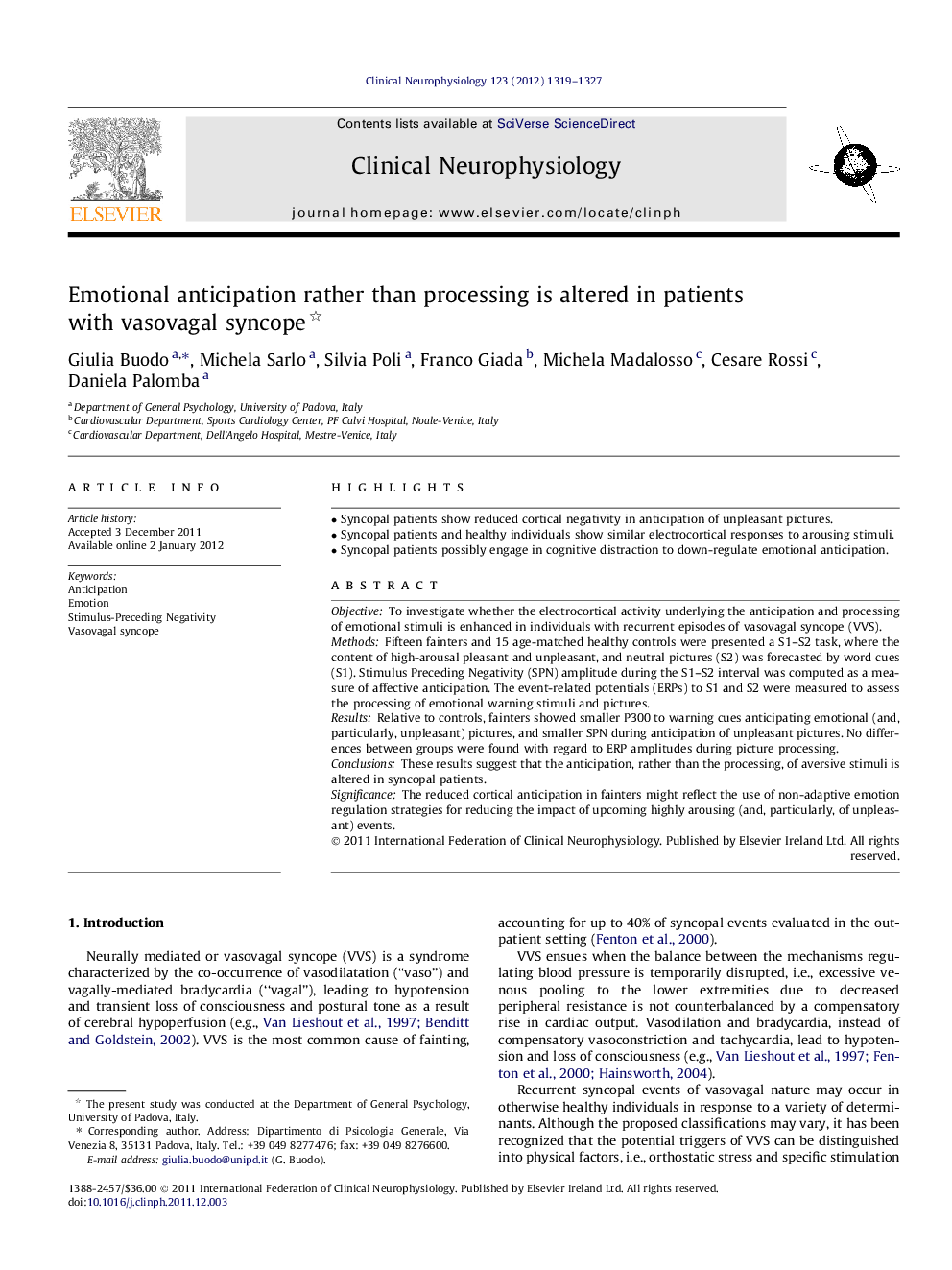| Article ID | Journal | Published Year | Pages | File Type |
|---|---|---|---|---|
| 3045494 | Clinical Neurophysiology | 2012 | 9 Pages |
ObjectiveTo investigate whether the electrocortical activity underlying the anticipation and processing of emotional stimuli is enhanced in individuals with recurrent episodes of vasovagal syncope (VVS).MethodsFifteen fainters and 15 age-matched healthy controls were presented a S1–S2 task, where the content of high-arousal pleasant and unpleasant, and neutral pictures (S2) was forecasted by word cues (S1). Stimulus Preceding Negativity (SPN) amplitude during the S1–S2 interval was computed as a measure of affective anticipation. The event-related potentials (ERPs) to S1 and S2 were measured to assess the processing of emotional warning stimuli and pictures.ResultsRelative to controls, fainters showed smaller P300 to warning cues anticipating emotional (and, particularly, unpleasant) pictures, and smaller SPN during anticipation of unpleasant pictures. No differences between groups were found with regard to ERP amplitudes during picture processing.ConclusionsThese results suggest that the anticipation, rather than the processing, of aversive stimuli is altered in syncopal patients.SignificanceThe reduced cortical anticipation in fainters might reflect the use of non-adaptive emotion regulation strategies for reducing the impact of upcoming highly arousing (and, particularly, of unpleasant) events.
► Syncopal patients show reduced cortical negativity in anticipation of unpleasant pictures. ► Syncopal patients and healthy individuals show similar electrocortical responses to arousing stimuli. ► Syncopal patients possibly engage in cognitive distraction to down-regulate emotional anticipation.
